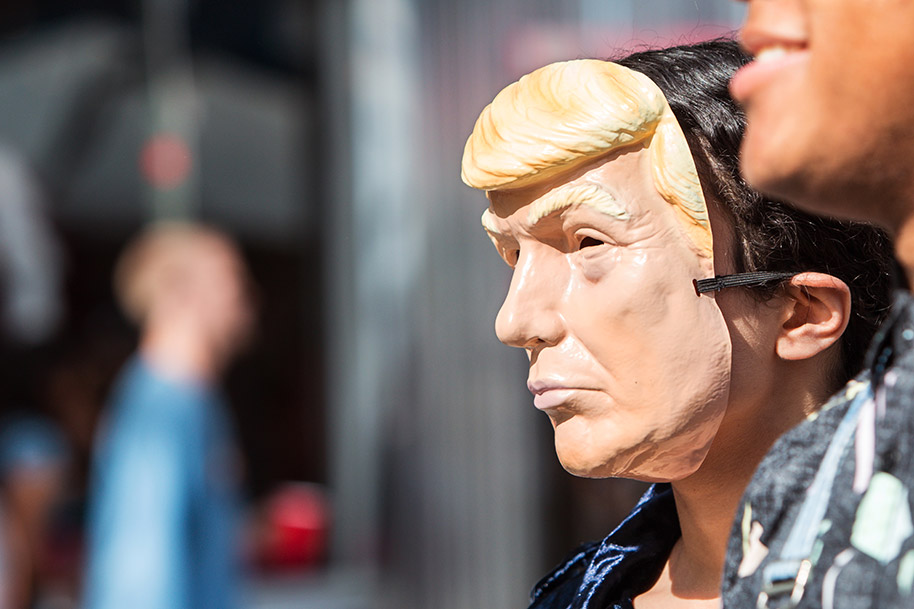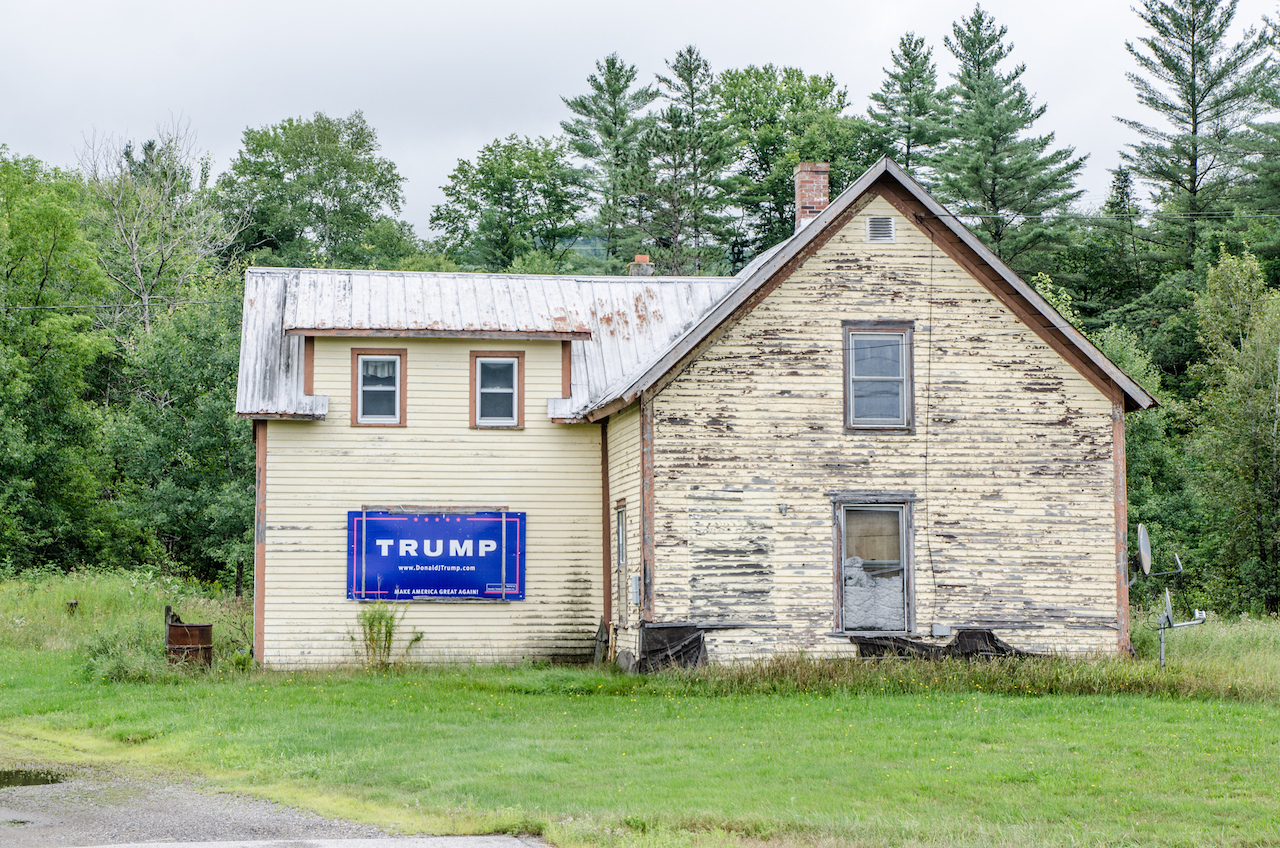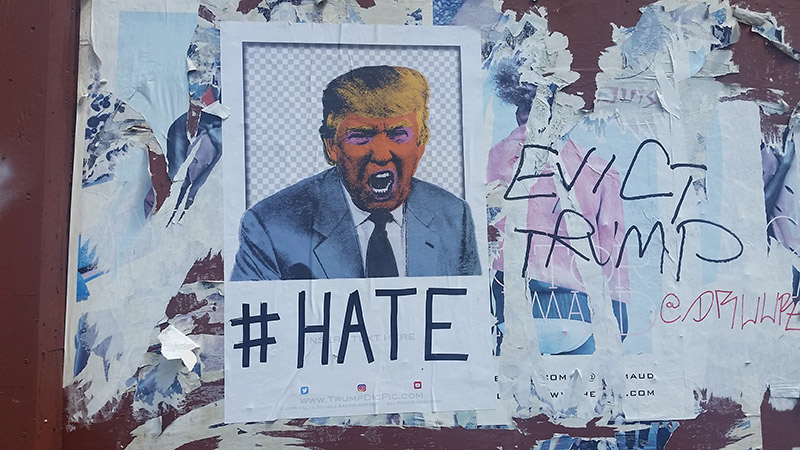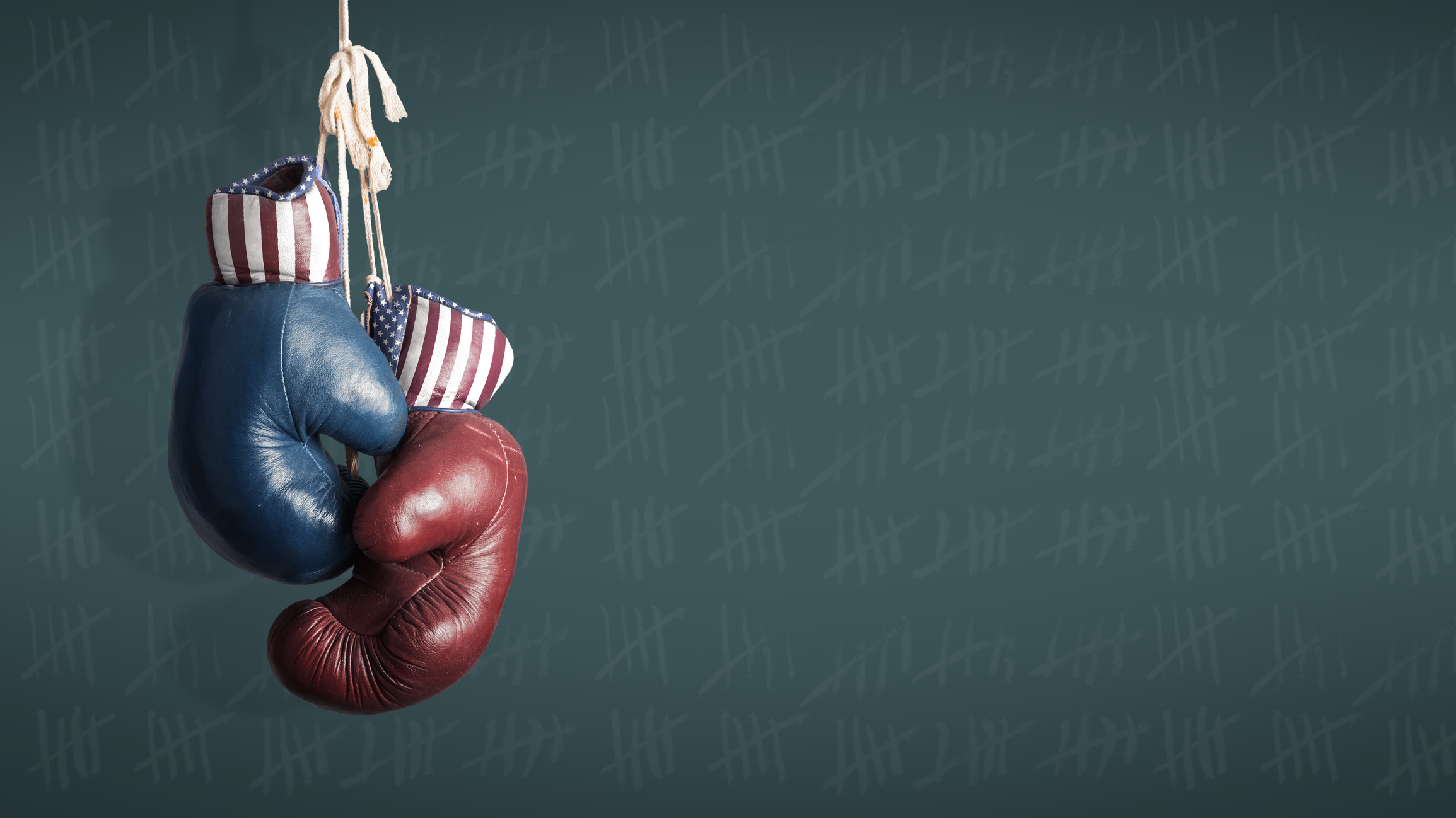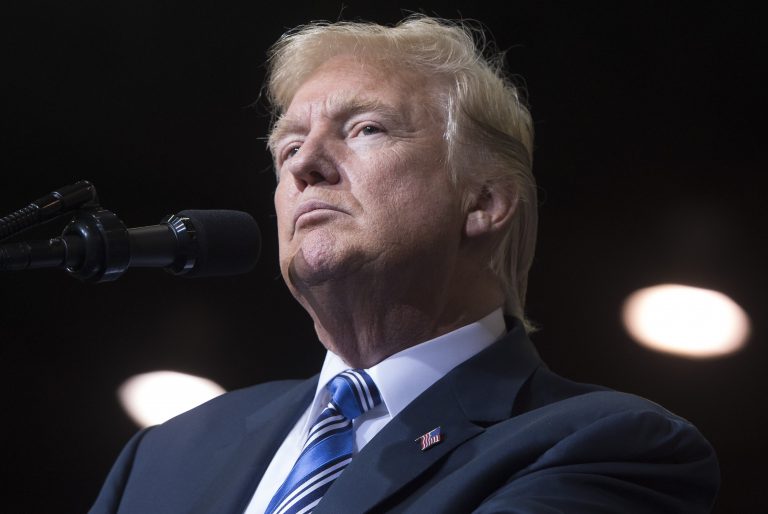Breaking Bad: What David Azerrad Gets Wrong about Trump and Manliness.
Hard American Pride

Hard and Soft: Competing against the administrative state.
One passage in Charles Kesler’s meditation “Thinking About Trump” reminded me of a banner I noticed at the 1984 Republican National Convention. It was enormous, and stretched over the podium, proclaiming “Prouder, stronger, better.” Though not fully recovered from my youthful liberalism, I could understand “stronger” as a reference to the Reagan defense buildup and “better” as a reference to the traditional values cherished especially by white evangelicals who had switched from their fellow born-again Christian Jimmy Carter to Ronald Reagan four years before.
But what was “prouder” all about?
The answer that I found myself stumbling toward came back to me in a passage near the end of Kesler’s article. After mentioning some of Donald Trump’s weaknesses, he credits him with two strengths: a sense of humor and “a kind of courage in defending one’s own,” especially his fellow Americans. Running against a Democrat who claimed half Trump’s supporters were “deplorables” (for, among other things, opposing same-sex marriage, which she herself had opposed for 45 of her 48 years of adult life), “Trump alone among the 2016 candidates took an unflinching, a proud stand against the multicultural dissolution and loathing of America.”
Prouder: Reagan could appeal to an electorate a majority of whose members remembered, as he noted in his 1989 farewell speech, when entertainment media took an appreciative and sympathetic view of American life. Donald Trump faced an electorate a majority of whose members three decades later supposed that such a time had once existed, but had only a hazy idea of just when. Trump’s brilliantly chosen slogan, “Make America Great Again,” shrewdly left it ambiguous.
Kesler makes generous mention of my 2004 book Hard America, Soft America, and argues that Trump “considers himself a kind of ambassador from Hard America” — the parts of American life shaped by competition and accountability — “to Soft America.” Less explicitly Kesler seems to concede that much of Trump’s success has come from the soft zones. Trump is a “family entrepreneur,” responsible to no board of directors or shareholders, and his escape from financial ruin in the early 1990s recalls the adage that the man who owes the bank $1,000 and can’t pay is at the mercy of the bank, but the bank is at the mercy of the man who owes it $1 million. Yes, Trump measures his success by the metrics of the marketplace, but not always accurately, as in his insistence that more people attended his inaugural than his predecessor’s.
There’s another point here worth pondering. Since 2004, Kesler suggests, Hard America has been contracting and Soft America, bereft of competition and accountability, has been expanding. The grade inflation of the schools has bred a generation of young people — the self-praising Millennials — spending more federally-subsidized years in schools, living with their parents and delaying (deferring indefinitely?) marriage, childbearing, and homeowning. Such denizens of Soft America, pollsters tell us, loathe the 45th president and have a dismaying taste for socialism.
If Trump is to roll back, as Kesler urges, the heretofore seemingly inexorable metastasis of the administrative state, he needs to make some headway persuading them of the virtues of Hardness. He has made serious progress on “constitutionalism” — Kesler’s solution — by his sterling judicial appointments, even as he seems to be lagging on issues on which his stands have differed most distinctively from previous Republican leaders. Where is the beautiful wall and the check from Mexico? I find Trump a maddening mixture of smart original insights and vast areas of ignorance, blessed by defective opponents and in perpetual danger of self-inflicted defeat — but who has fared much better in the Hard competition of the electoral marketplace than I and so many others expected.
The American Mind presents a range of perspectives. Views are writers’ own and do not necessarily represent those of The Claremont Institute.
The American Mind is a publication of the Claremont Institute, a non-profit 501(c)(3) organization, dedicated to restoring the principles of the American Founding to their rightful, preeminent authority in our national life. Interested in supporting our work? Gifts to the Claremont Institute are tax-deductible.
In Search of Populism: The ruling class ignored the people; the people struck back.
Kesler's "Thinking About Trump" essay explained then why the NeverTrump right is finished now.
Breaking Bad: The kindler, gentler days are over.
The substance of Trump's Constitutional vices.
American Greatness and the Claremont Institute are leading a renaissance on the Right.

